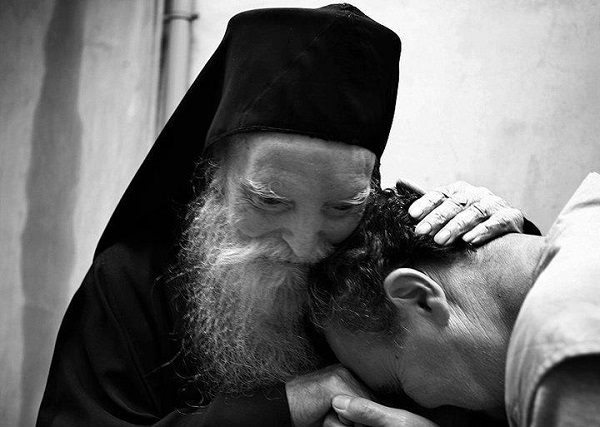We should not despair even if we sin many times
1 October 2020You shouldn’t despair, even if you’re not as you should be. Certainly it’s bad that you’ve sinned, but why do you then wrong God by regarding Him, in your ignorance, as powerless? For your sake He created the great universe which you behold, and is He then incapable of saving your soul? And if you say that this, as well as His incarnation, only makes your condemnation worse, then repent. He’ll accept your repentance, as He accepted that of the prodigal son and the harlot. But if repentance is too much for you and you continue to sin out of habit, even if you don’t want to, show humility, as did the publican. This is enough to ensure your salvation. Because those who sin without repenting, but don’t despair, must necessarily regard themselves as the lowest of creatures and won’t dare to judge or censure other people. Rather, they’ll be in awe of God’s compassion and will be full of gratitude towards their Benefactor. In this way they’ll be given many other blessings, as well. Even if they’re subject to the devil in that they sin, they nevertheless disobey the enemy when he tries to make them despair. For these reasons they have their portion with God: for being grateful, giving thanks, being patient, fearing God and not judging, that they may not themselves be judged. All these are crucial qualities. As Saint John Chrysostom says about Gehenna: it is almost as useful to us as the kingdom of heaven is, since there are many who enter the kingdom of heaven because of it; whereas only a few enter for the sake of the kingdom itself. And if they do enter, it’s by virtue of God’s compassion. Gehenna pursues us with fear; the kingdom embraces us with love. Through them both we’re saved by Christ’s grace [Homily on 1 Timothy 15, PG lxii, 583].

If those who are attacked by many passions of soul and body endure with patience; if they don’t, out of negligence, surrender their free will; and if they don’t despair, they’re saved. By the same token, those who have achieved the state of dispassion, lightness of heart and freedom from fear quickly fall if they don’t confess God’s grace continually by not judging others. Indeed, if they should dare to judge anyone they make it evident that, in acquiring their wealth, they’ve relied on their own powers, as Saint Maximos declares. Saint John the Damascan says that if those who are still subject to the passions and who lack the light of spiritual knowledge are put in charge of others, they’re in great danger. Those who have received dispassion and spiritual knowledge from God but don’t help other people face the same danger.
Nothing benefits the weak so much as withdrawal into quietude; or those still subject to the passions and lacking spiritual knowledge as a combination of obedience and quietude. There’s nothing better than knowing your own weakness and ignorance; and nothing worse than not recognizing them. No passion is so hateful as pride, or as ridiculous as avarice, ‘the root of all evils’; because those who labor away mining silver and then hide it back in the earth gain no profit from it. This is why the Lord says: ‘Do not store up treasures on earth’ and again ‘Where your treasure is, there will your heart be also’. Our intellect [nous] is drawn by longing towards those things with which it’s habitually occupied, be they earthly things, the passions, or heavenly and eternal blessings. As Saint Basil the Great says, a persistent habit acquires all the strength of nature.
Weak people in particular ought to take heed of the promptings of their conscience, so that they may free their soul from all condemnation. Otherwise, at the end of their life they may repent in vain and mourn eternally. If you can’t endure, for Christ’s sake, a physical death such as Christ underwent, you should, at least, be willing to endure death spiritually. You’ll then be a martyr as regards your conscience, in that you don’t submit to the demons that assail you or to their purposes, but conquer them as did the holy martyrs and the holy fathers. The former were martyrs in the body, the latter in the spirit. By forcing oneself a little, you defeat the enemy; if you’re only slightly negligent you’re filled with darkness and destroyed.






